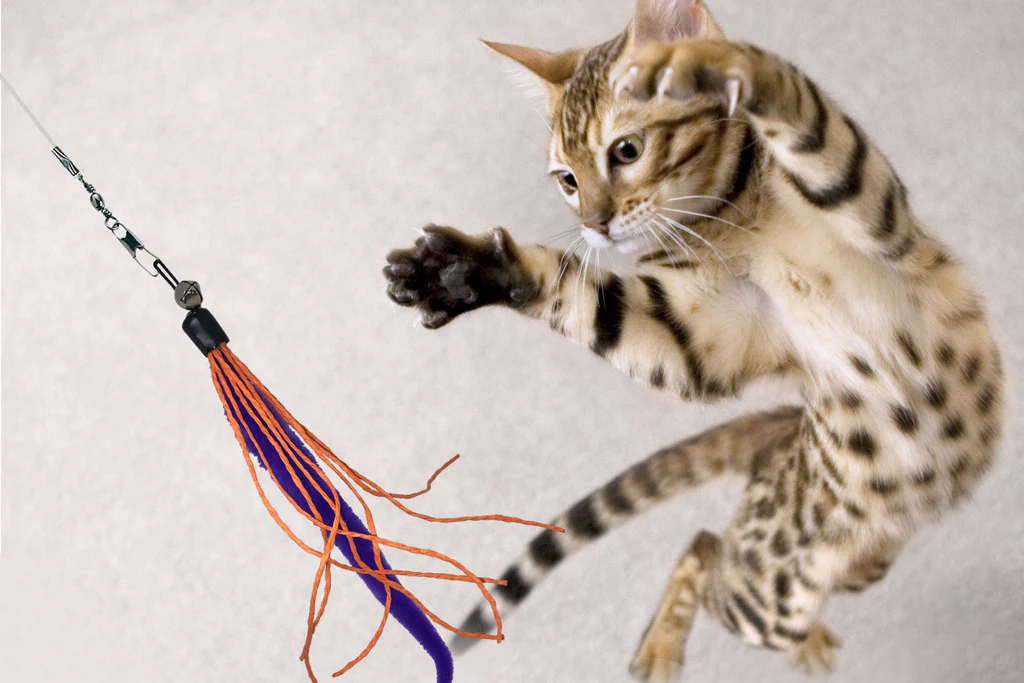
When it comes to cat litter, many of us stick to what’s convenient or what’s cheapest on the shelf. However, traditional clay-based litters have a significant environmental and health impact. Over 2 million tons of clay litter end up in U.S. landfills each year, and the clay mining process contributes to environmental degradation. That’s why more and more pet owners are switching to natural cat litter, which is not only better for the planet but can also be healthier for your cat. Here, we’ll dive into the top questions about natural cat litter to help you make the switch to a more sustainable choice.
- 1. What Is Natural Cat Litter Made Of?
- 2. Is Natural Cat Litter Biodegradable?
- 3. How Does Natural Cat Litter Control Odor?
- 4. Is Natural Cat Litter Safe for My Cat?
- 5. Is Natural Cat Litter Dust-Free?
- 6. How Absorbent Is Natural Cat Litter?
- 7. Is Natural Cat Litter Flushable?
- 8. Does Natural Cat Litter Last as Long as Traditional Litter?
- 9. Are There Scented Options for Natural Cat Litter?
- 10. Is Natural Cat Litter More Expensive?
1. What Is Natural Cat Litter Made Of?

Natural cat litter is made from a variety of biodegradable materials, including wood, corn, wheat, paper, and even walnut shells. These materials are sustainably sourced, often from recycled or renewable resources. Unlike traditional clay litter, which is mined through destructive processes, natural cat litter is designed to decompose and reduce waste.
2. Is Natural Cat Litter Biodegradable?
Yes, most natural cat litter options are fully biodegradable. Traditional clay litters can take hundreds of years to break down, clogging landfills and contributing to environmental pollution. Natural litters, on the other hand, are compostable and break down in a fraction of the time, helping you lower your household’s carbon footprint.

3. How Does Natural Cat Litter Control Odor?

Odor control is a key concern for cat owners. The good news is that many natural litters are highly effective at neutralizing smells. Some, like those made from wood or corn, have natural antimicrobial properties that combat bacteria and odors. While clay litters mask the smell with synthetic chemicals, natural litters often provide a more subtle, non-toxic solution to keep your home smelling fresh.
4. Is Natural Cat Litter Safe for My Cat?
Absolutely. Natural cat litter is typically free from the harsh chemicals, fragrances, and dust that can irritate your cat’s lungs or trigger allergies. According to a study by the Environmental Working Group, traditional clay litters contain silica dust, which has been linked to respiratory problems in both humans and animals. By choosing natural cat litter, you can protect your cat’s health, especially if they have sensitivities.

5. Is Natural Cat Litter Dust-Free?

One of the biggest concerns with traditional clay litters is the dust they produce. Clay-based litter can release silica dust, which can be harmful when inhaled by both cats and humans. Fortunately, most natural cat litters are low in dust or completely dust-free. Litters made from materials like wood or recycled paper often produce little to no dust, making them a much better choice for cats with respiratory issues or allergies.
6. How Absorbent Is Natural Cat Litter?
Absorbency is a critical factor when it comes to choosing cat litter, as it directly impacts odor control and ease of cleaning. While clay litters are known for their clumping ability, many natural litters are equally effective. For instance, corn-based and walnut-based litters clump well and absorb liquid quickly. Wood pellet litters, while not clumping, are extremely absorbent and can trap moisture effectively.

7. Is Natural Cat Litter Flushable?

Some natural cat litters are labeled as flushable, meaning they can be safely disposed of in the toilet without harming plumbing systems. However, it’s essential to verify local regulations as some areas may not allow litter flushing due to environmental concerns. Additionally, avoid flushing cat waste if your cat has been diagnosed with toxoplasmosis, as the parasite can contaminate water supplies.
8. Does Natural Cat Litter Last as Long as Traditional Litter?
Natural cat litters can be just as long-lasting as traditional clay litter, depending on the type and brand. Some materials, like corn or walnut shells, offer excellent durability and need to be replaced less frequently. While these litters might come with a higher price tag upfront, they often last longer, making them a cost-effective and eco-friendly choice in the long run.

9. Are There Scented Options for Natural Cat Litter?

Yes, many natural litters offer light, natural scents without the use of artificial fragrances. For example, some wood-based litters have a natural pine or cedar aroma that helps mask odors without being overwhelming. These natural scents are less likely to cause allergies or respiratory problems for your cat.
10. Is Natural Cat Litter More Expensive?
While the initial cost of natural cat litter may be higher than traditional clay litters, the benefits far outweigh the cost. You’ll use less litter over time due to its superior absorbency, and you’ll be making a positive impact on the environment and your cat’s health. Plus, as more cat owners switch to eco-friendly options, the market is expanding, making natural cat litter more affordable than ever.
Switching to natural cat litter is a simple but effective way to reduce your environmental impact while keeping your cat healthy. Whether you’re concerned about your cat’s exposure to harmful chemicals, the sustainability of clay litter production, or the impact of waste on landfills, natural cat litter provides a solution. With options that are biodegradable, dust-free, and odor-controlling, it’s easier than ever to make an eco-friendly choice for your pet. Give natural cat litter a try—you’ll be helping the planet and your furry friend!
